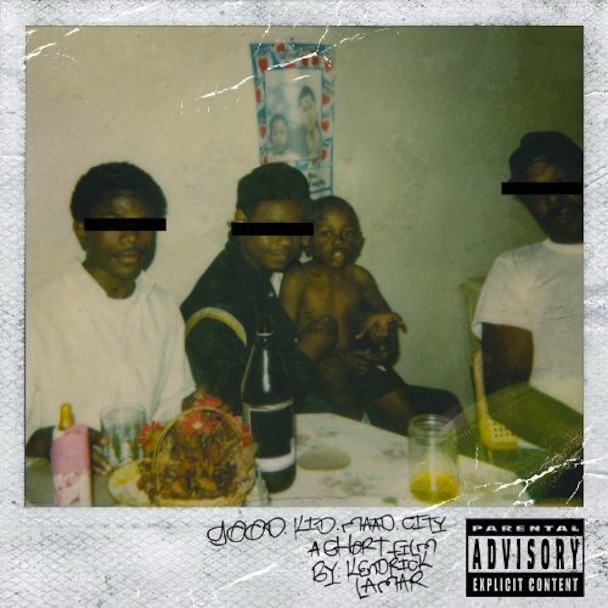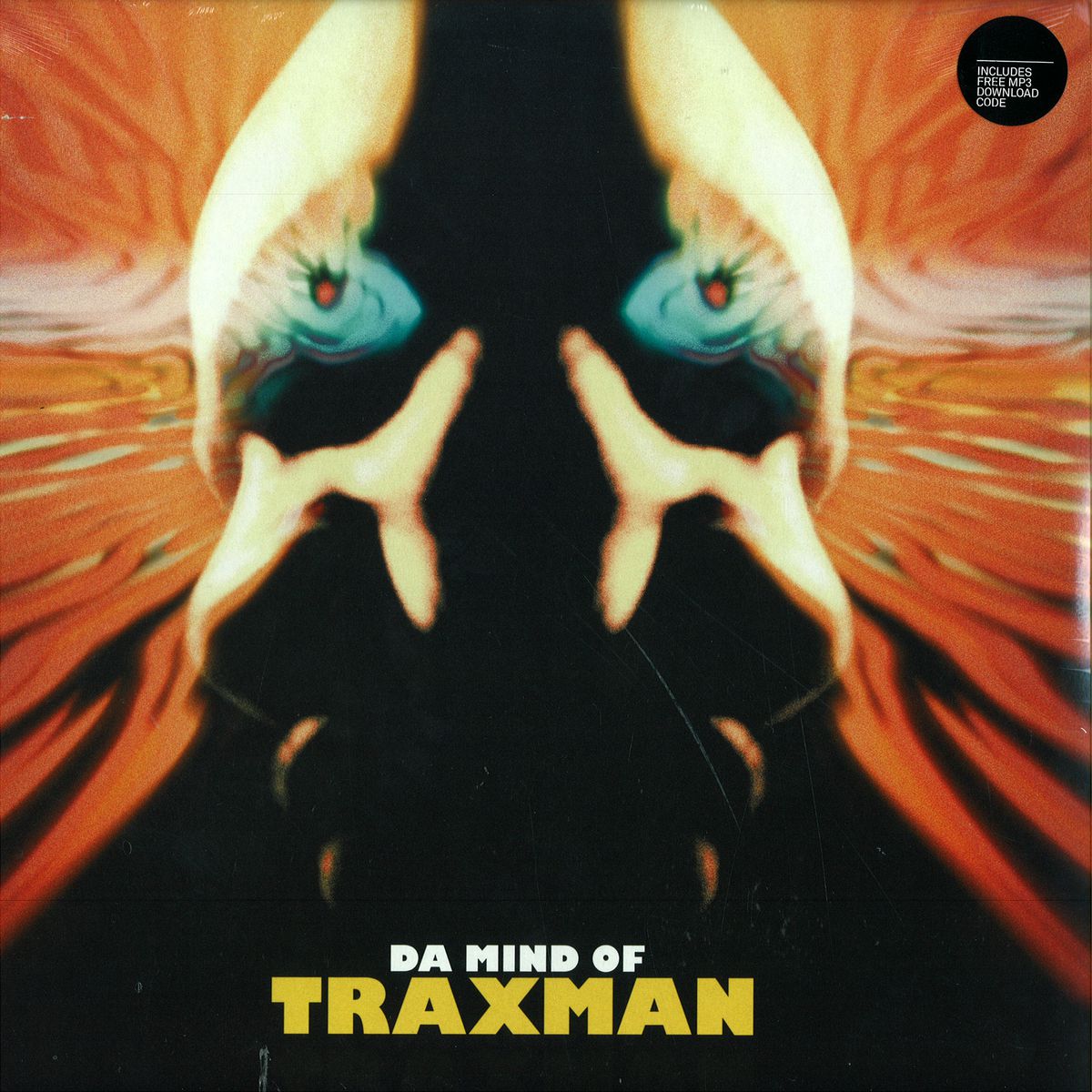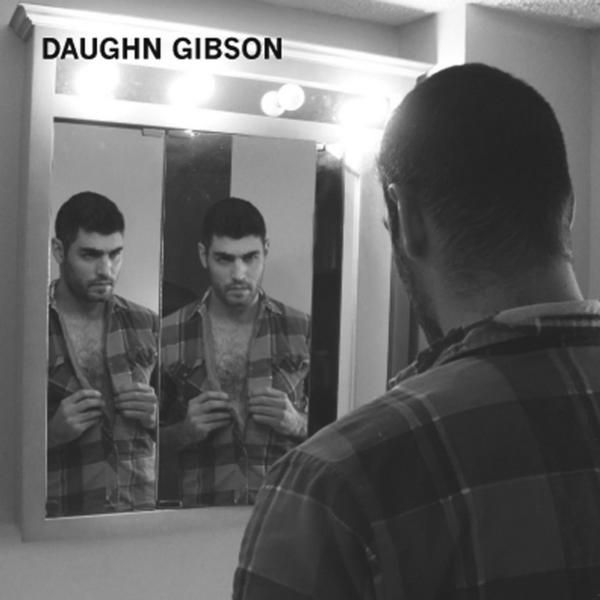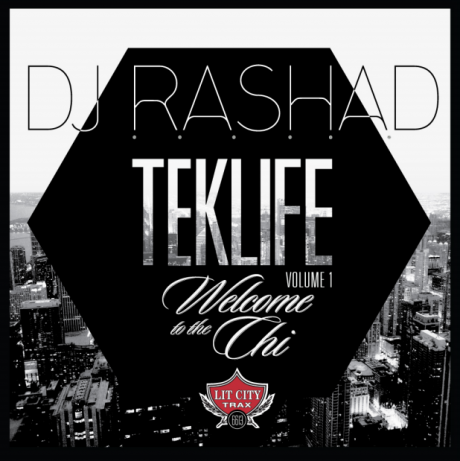We celebrate the end of the year the only way we know how: through lists, essays, and mixes. Join us as we explore the music and films that helped define the year. More from this series
20. Kendrick Lamar
good kid, m.A.A.d city
[Top Dawg/Aftermath/Interscope]

Despite exemplifying François Truffaut’s oft-cited claim that “it is impossible to make a true anti-war film, because the act of looking at violence is inherently exciting,” Kendrick Lamar’s “short film” succeeded at having it both ways, as a thrillingly visceral, yet explicitly critical depiction of a conflict that has claimed the lives of countless young men. Received as an instant classic, good kid, m.A.A.d city has revealed itself to be more flawed — and more rewarding — than even the rapturous critical response would have had you believe. Even if good kid, m.A.A.d city never fully transcended the Afro-American Gothicisms of its boilerplate gang-initiation storyline, Lamar experimented with form more daringly than any other rapper to date, a claim that even his detractors, few and far between, would have trouble disputing. There are few longform narratives in pop music and fewer still that are this thoughtful, cohesive, or self-consciously cinematic. Despite its fractured timelines and mythopoetic aspirations, it would be a stretch to describe good kid, m.A.A.d city as avant-garde; nevertheless, this was unmistakably the work of an artist leading the charge, at the forefront of a still-undefined new wave.
19. Traxman
Da Mind of Traxman
[Planet Mu]

“Footworkin on Air,” the opening track of this Planet Mu debut by Traxman, was one of footwork’s finest moments of the year. Instead of strapping a chopped vocal stutter into the pilot’s seat, Traxman commanded an echoey marimba melody to navigate the jagged snare snaps and jerky claps. It felt like, well, footworkin on air — like floating, lingering, wandering, drifting. The footwork sound ordinarily thrives on claustrophobic blasts and grinding repetition. But Traxman spread his wings and momentarily soared away from the battle floors that serve as the music’s natural habitat. This was a fascinating gesture considering that, due to Lit City Trax and Planet Mu’s numerous juke and footwork releases (Spinn, Rashad, Young Smoke, et al.), this once hyper-local Chicago dance music managed to smack many new ears this year — ears that belong to bodies with feet that were “on air,” not down on the dance floor. This same curious infinity-feeling snuck, ever so slightly, into head-nodders like “Chillllll” and “Lady Dro,” but Traxman mostly did what he does best: design dizzying mazes of ever-tangling sounds that maximized tension without offering breathing room, let alone the possibility of escape.
18. The Caretaker
Patience (after Sebald)
[History Always Favors the Winners]

Last year, our fourth favorite album of the year was The Caretaker’s An Empty Bliss, a work that was best understood through the suspect deployment of nostalgia in 2011 films like The Artist and Hugo. Here in 2012, The Caretaker wowed us again. But while the album soundtracked Grant Gee’s documentary of the same name, the music this time also had to be approached through literature. An astute reader will understand immediately: we find W.G. Sebald, one of the most incisive and tragic writers of recent times, directly in the album’s title. At the start of this millennium, Sebald promised literary vision and deliverance; before the end of 2001, he was dead. Likewise, The Caretaker’s tracks, regardless of promised melody, seemed inevitably to drift away, to be lost at sea. Sebald was famous for embedding pictures into his prose, often antique found photos, already faded, holey, beautiful, tortuous for lack of clarity — not unlike the music of Patience. No single medium was sufficient in these endeavors, as all bowed to the greater work of Human Memory. In 2012, The Caretaker mined moments from the past and exposed them to the development of the present, without breaking a resolute stare toward the future.
17. Daughn Gibson
All Hell
[White Denim]

“Daughn Gibson” sounds like only a slightly down-pitched version of “Don Gibson,” the name of one of Nashville’s saddest poets. And yet, with such minor tweaks, Daughn Gibson (real name Josh Martin) seems to have resurrected all the great grim ghosts of country’s past. All Hell, his debut, didn’t merely set country music storytelling to wobbly synths and digital loops. Rather, it exploited the emotional possibilities of digital sound production to create a remarkably contemporary kind of pain. The redneck emptiness of “Bad Guys” existed not in spite of, but through its half-false processing of Gibson’s clichéd baritone; the outlaw desperation of “In the Beginning” came across not just in the song’s pleading lyrics, but in its crowded mix of scratchy samples, as they each incessantly returned to some long lost time before sin. Gibson had the good sense to keep his arrangements as light as the morning air, and yet it was precisely the incredible weightlessness of these songs that made each so crushingly tragic. In fact, All Hell simply did what all good country does: it turned the time of decay and space of ruination into pleasing sonic form. Sadness, grief, loss, betrayal — the circle is indeed broken, but the emotions it once contained here became sources of exquisite pleasure and established nothing less than a future for country.
16. Death Grips
The Money Store
[Epic]

Try to pigeonhole Death Grips. Just try. Experimental. Industrial. Hip-hop. Rap. Punk rap. Garage rap. Noise rap. Avant-noise. Post-noise. Electrical noise. Listen to “Double Helix.” MC Ride shouts about an “unidentified genre abductor,” and maybe that’s the best way to describe Death Grips. Furtive. Violent. The Money Store warped and wrecked sounds we knew or sounds we thought we knew. The Money Store crackled and rumbled from an unrecognizable future world, a wasteland where only shattered screens and burnt wires and exploded buildings remain. MC Ride, Zach Hill, and Andy Morin channeled an underworld from the end of the world to warn us, to shock us into remembering that no one is ever safe. “Lost Boys” trapped a disembodied voice in a burned-out power plant. “The Cage” distorted and broke down beats that sounded like alarms. “Hacker” invaded a crowd. The Money Store conjured a dark and deconstructed space where no one speaks and no one sleeps, a space mapped only by disregard and danger. And yet, we’ve returned again and again. We’ve returned for the thrill.
15. DJ Rashad
TEKLIFE Vol. 1: Welcome to the Chi
[Lit City Trax]

It’s easy to label DJ Rashad’s TEKLIFE Vol. 1 as footwork’s crowning achievement. After several years of hype and more than a few exceptional releases, 2012 saw the genre expand with the epic, 83-minute TEKLIFE released by his own Lit City Trax (with DJ Spinn and J-Cush), entering the mainstream media’s consciousness and subsequently representing the whole Chicago-based dance movement for most curious listeners. Unsurprisingly, Rashad lined his record with the enduring footwork trademarks: highly syncopated, often disorienting rhythms and chopped samples falling somewhere between bizarre minimal rap and kush-fueled experimentation. But let’s get real: TEKLIFE was its own hybrid animal, an album that reflected Rashad’s rapidly evolving musical intuition and an international flavor influenced by his globetrotting. The record could be weird as hell, brimming with ideas, sprawlingly uneven, and all the better for it. You either connected with it or you didn’t, its bare-bones production being either amateurish or a welcomed catharsis from overcrowded house and calculated, entitled indie. Appropriate for footwork’s ambassador, the tracks on TEKLIFE were constantly in motion, containing an almost improvisational spirit and looseness amidst an unrelenting pulse. As far as I’m concerned, the mid-album span from “Fly Spray” to “Over Ya Head” was its own masterstroke within a masterstroke, a 40-some minute stretch of absurdist new-electronic minimalism that once again raised the bar. By the time “We Leanin” locked into its pitch-shifting, hilarious, mindblowing four-minute mantra of “I’m geeked up off them bars, n****,” there was no turning back.
14. BEBETUNE$
inhale c-4 $$$$$
[Self-Released]

Another faux-trendy, post-ironic, undanceable dance release with lots of caps lock and hashtags? Nice, TMT. Real nice. No question we listened to plenty of “that” this year — not that our brains were too warped to interlock upon any consensus — but James Ferraro’s mixtape as BEBETUNE$ was an uncommonly singular entry, one that managed to encapsulate so many of 2012’s ever-morphing musical values without at any point allowing itself be mistaken for a thing cold, conceptual, anthropological, or rote. Sure, its social critiques (witness the mutant gurgle and PCE-evoking title of “Pepsi Baby”) were readily apparent. And the flotsam — the hypercompressed escalations building to nothing at all, the most indulgent Auto-Tune discharges this side of Farrah Abraham — might on first listen have sounded like baldfaced hit-or-miss references. But this was not a listening experience of strung-out addiction and malaise: some uncanny, aberrant harmony repeatedly beckoned us back. Ferraro’s became an accelerationism fearless and deceptively serene. Between the insanely cheesy synth that provided the lone ray of clarity in “#C I T Y LIGHT$$$” and what may be a literal storefront congregation in “P.O.W.E.R.,” Ferraro’s project was secretly about locating a kernel of belief at the core of all things cultural, messy, and anxious. Forget “distroid” — by far the most unnerving thing about inhale c-4 $$$$$ was the warm, beating heart at the center of each song.
13. Holly Herndon
Movement
[RVNG Intl.]

Suspense was one of the central components that made Holly Herndon’s Movement such an irresistible listen. Patterns emerged through purported rhythms that stretched across a drastic range of formats, respiration being the most prominent. Ex/inhalation, contraction, expiry, and whisper become visualized as a consequence of observing compositional frameworks, where specific sounds were subconsciously imposed by association upon familiar, tangible motions — when Herndon breathed in, it was understandably expected that exhalation would follow. The element of tension was achieved through tampering with the setup of each anticipated response in creating something wholly unimaginable. Gingerly austere, delicately abraded, strung up, and wrapped in plastic, these patterns didn’t solely extend the breadth of the rhythmic experimental tracks exhibited here; they also encompassed those disco moments so lovingly hailed by critics as an open doorway to the “academic sound art tangled in Berlin nightclub appreciation” model that Herndon adopted. Regardless of the form these splendid compositions took — a 4/4 beat fumbling into pitch-shifted purr, a palpitating baritone loop bleeding into crumpled distortion, a stupefied retention that danced like analog static — suspense was always on the cusp, looming at the seams of the most gorgeously pranayamic album of 2012.
12. Frank Ocean
channel ORANGE
[Def Jam]

The de facto chaperone of a brilliant though foul-mouthed collective of young L.A. rappers, Frank Ocean had a few pop songwriting credits and a mixtape to his name when Kanye made him the first voice you hear on his and Jay-Z’s occasionally exceptional index of hubris, Watch the Throne. Stack on that the difficulty of coming out just before releasing an eagerly anticipated album in a genre where homophobia still finds plenty of purchase. And yet all this pales: “Thinkin Bout You,” ORANGE’s astonishing opener and single, introduced Ocean as a voice both pained and limitless, falsetto employed with abandon, as haunted and oversexed as anything from Prince or D’Angelo. Across the album’s 62 minutes, Ocean veered from heartbroken to pathetic (“Pyramids”) to eminently chill (“Sweet Life”) to something like lucky (“Super Rich Kids”). As he channel-surfed and catalogued the varieties of Californian experience, Ocean revealed himself to be an artful collaborator, a talented and well-read musician, and an innovative songwriter. channel ORANGE, defying its hype, revealed a young man at his most confessional, confused, and aching, already primed for an altogether new type of throne.
11. Grimes
Visions
[4AD/Arbutus]

Let them be, they can’t shut up. Nor should they. You should calm down. No need to be angry. We can be far more than this… No, we have been. Even when we were excessive. Even when we sounded childish. People just try to bring us down because they need to. They need to forget that they, they themselves, are just as flawed and messed up. They just want us to fuck up so we feel better about themselves. Well, let them think that, whatever. We still have ourselves, right? And that certainly helps. You could be a better friend […] I could be a better man. You put a line, let it drag out, punched a beat that makes the whole damn thing danceable. You let your voice waver, quiver, but never get gimmicky. You kept yourself at a constant. You had help from others, but you were great by yourself. Being myself makes me feel like I know who you are. You kept yourself distant yet close, and that’s important. You’re always there, even when you don’t reveal yourself. And yet, you didn’t think of yourself as any better than anyone else: I know you’re faced with something/ That could consume you completely. It makes you very powerful. And you remember: It’s always different. They may not like you, but they can’t touch you.
We celebrate the end of the year the only way we know how: through lists, essays, and mixes. Join us as we explore the music and films that helped define the year. More from this series
